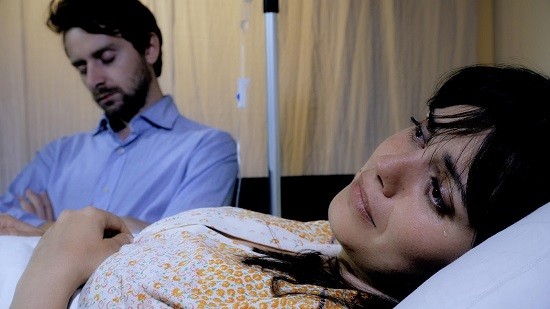What Happens After a Suicide Attempt?
An unsuccessful suicide is a gift to all who know and love the individual who failed in their attempt. After stabilizing they will have an opportunity to get the help and support needed to manage the depression that brought them to the point of wanting to take their own life. Major depressive disorder is present in the majority of people who attempt or succeed at suicide.
About 16 million individuals struggle with depression each year in the U.S. Of the 16 million, only about one third will ever seek treatment for the depression symptoms, according to Mental Health America. Many avoid seeking help because they believe they will get better on their own. Still others worry about the perceived stigma attached to mental health conditions and simply refuse to see a therapist or doctor about their struggles.
With suicide rates continuing to climb—now averaging 123 per day according to the American Foundation for Suicide Prevention—there is an urgent need to address the high prevalence of depression within our society and find new ways to treat major depression. What happens after a suicide attempt can lay the foundation for the psychological support so desperately needed, and hopefully prevent a future attempt.
Causes of Depression
Depression is mysterious. Its symptoms can seemingly appear out of nowhere, stealing your energy, concentration, ability to sleep, motivation, and even your will to live in the most severe cases. Some of the factors involved in developing depression might include:
- Genetics. A family history of depression might exist in the family tree
- Brain chemistry. Levels of neurotransmitters, the brain chemicals within the limbic system, may be out of balance
- Gender. About twice as many women experience depression than men
- Life events. Traumatic or highly unsettling events can contribute to depression
- Temperament. Some people have more negative thought patterns that translates into emotional or mood disorders
- Medical conditions. Depression can be a symptom related to certain health conditions such as Parkinson’s disease, Alzheimer’s disease, heart disease, cancer, and others
- Substance use disorder. Alcoholism is a common co-occurring disorder with depression
Because the causes and risk factors are so varied and complex, treating depression remains a guessing game in many respects. Doctors generally begin by prescribing an antidepressant they hope will be effective. It is merely an educated guess as to which of about 20 brands of antidepressants might be effective in a given patient. If the first medication is ineffective, the doctor will have the patient trial another, and so on in a kind of process of elimination.
Suicidality as a Diagnostic Criterion for Major Depressive Disorder
The DSM outlines nine symptoms related to depression, and to diagnose depressive disorder at least five symptoms must be consistently exhibited for over two week. These criteria include:
- Depressed mood most of the time
- Loss of interest in activities once enjoyed
- Significant weight loss or weight gain due to a change in eating habits or appetite
- Trouble sleeping or over-sleeping nearly every day
- Psychomotor agitation or retardation
- Fatigue or loss of energy
- Inappropriate feelings of worthlessness or guilt
- Diminished ability to think or concentrate, or to make decisions
- Recurrent thoughts of death, recurrent suicidal ideation without a specific plan, or a suicide attempt or a specific plan for committing suicide.
What Happens After a Suicide Attempt
In extreme cases of depression someone while in deep despair may attempt or commit suicide. Each person’s case is specific to his or her own unique symptoms and causal factors, but once a suicide attempt has been made certain steps will follow. The first step is to procure emergency medical assistance that will transport the individual to the hospital for assessment and evaluation in addition to get medical treatment for any injuries sustained in the attempt. While at the hospital there will be a 24/7 sitter assigned to the patient’s room, as they will be considered a suicide risk.
A psychiatrist will be referred to the patient, and possibly a social worker as well. The goal is to stabilize the patient and prepare them for psychotherapy. Antidepressants are the first line of treatment in most cases for those who have attempted suicide. Depending on the state in which the suicide attempt was made, the patient might be transported directed to a mental hospital for evaluation after the injuries have been treated and the patient is stabilized. The psychiatric evaluation will provide enough information for a determination to be made if it is safe to discharge the individual or to keep them for further treatment.
Depression Treatment
What happens after a suicide will usually involve targeted depression treatment for the individual. Usually this will entail a combination of antidepressants and psychotherapy. In roughly half of depressed patients who receive this traditional treatment regimen their will not be a successful result. The psychiatrist may trial several different antidepressants before determining that the patient is treatment resistant.
Treatment resistant major depression presents a serious problem for the individual who has attempted suicide. In the absence of an effective treatment for the depression, there is the risk that the individual will make another attempt of their life. For this reason it is important to seek out alternative treatments for major depression.
TMS Therapy for Treating Depression
TMS therapy is a brain stimulation technique that is noninvasive, meaning it does not require surgery or general anesthesia. TMS therapy was FDA cleared in 2008 to treat individuals with treatment resistant depression and has since helped thousands of people reclaim their joy in life. TMS works by directing magnetic pulses through the scalp to target the mood center of the brain, helping to jump-start the neurotransmitters that are underactive.
TMS is safe and effective as an alternative therapy for treating depression. Treatments last 4-6 weeks and do not require any down time or hospital stay. Over the term of the treatment, individuals begin to experience improvements in sleep quality, focus and concentration, energy levels, and mood. Combining TMS with psychotherapy and possibly antidepressants can offer the individual renewed hope and improved quality of life.
Anew Era TMS & Psychiatry Provides TMS Therapy for Depression
Anew Era TMS & Psychiatry is a leader in the field of TMS therapy for treating treatment-resistant depression. What happens after a suicide attempt can be crucial in alleviating depression symptoms and preventing future suicide attempts. TMS therapy offers an alternative solution for individuals who were not helped with antidepressants, giving them renewed hope of a life worth living. For more information about TMS therapy, please contact Anew Era TMS & Psychiatry today at (888) 503-1549.





